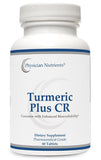More than 8,000 studies now support the antioxidant and anti-inflammatory powers of curcumin. Curcumin, which gives turmeric its bright yellow color, is now recognized as the compound in the turmeric root that is responsible for its many impressive properties.

Turmeric root has played an important role in traditional Chinese and Ayurvedic (Indian) medicine for centuries. However, only now is it being scrutinized scientifically to determine the extent of its medical capabilities.
Some of the medical applications of curcumin that have been identified so far include:
Arthritis
Curcumin was found to protect joint cartilage from being broken down by inflammatory compounds in the body. In one study, 93% of participants taking a combination of curcumin with the herbal supplement boswellia reported reduced or no pain, compared to only 86% of participants taking the prescription drug celecoxib.
Cancer
Curcumin has been shown to prevent cancer initiation, promotion and progression. In animal studies, it has been shown to make cancer cells more sensitive to cancer drugs thus making the drugs more effective. During radiation treatments, it protects normal cells while making tumor cells more sensitive to the radiation.

Diabetes
Some experts believe that the insulin resistance that leads up to Type II Diabetes is actually caused by chronic, low-level inflammation, particularly in the presence of obesity. Curcumin has been found to be equally effective in reducing insulin resistance, inflammatory markers and triglycerides as the drug rosiglitazone. It is also believed to have protective benefits against many of the complications of diabetes, such as retinopathy, neuropathy (nerve pain), heart disease and possible brain damage.
Neurological Disorders
Curcumin has been shown to be more effective than many drugs in inhibiting the formation of plaque (beta-amyloid fragments) in Alzheimer's patients. In Major Depressive Disorder (MDD), high absorption curcumin was as effective as the prescription drug fluoxetine with no side effects.
Heart Disease
Long-term use of curcumin was comparable to lovastatin in the suppression of early lesions in the arteries (atherosclerotic lesions).

Gastrointestinal Inflammation
Inflammatory diseases of the gastrointestinal tract, such as Irritable Bowel Syndrome (IBS), Inflammatory Bowel Disease (IBD), ulcerative proctitis, and Crohn's Disease are all associated with chronic inflammation of the GI tract. In one study involving 200 people with IBS, use of a standardized extract of curcumin resulted in a 25% reduction in abdominal pain. Two-thirds of participants reported an overall improvement in symptoms. Curcumin not only reduces inflammatory compounds in the intestines, but also can actually strengthen the intestinal wall, improving the condition known as "leaky gut syndrome."
Wound Healing and Skin Conditions
Curcumin both protects the skin by quenching free radicals and reducing inflammation, and also has been shown to improve collagen deposition and vascular density in wounds (which improves blood flow necessary to repair damaged tissue). This is especially important in diabetics, who often find that wounds are slow to heal. Research is now beginning to indicate that curcumin may also be beneficial in reducing inflammatory skin conditions such as psoriasis, eczema and skin cancer.
Why curcumin?
- More than 8,000 studies support it.
- It has virtually no side effects.
- It’s safe even at very high doses as indicated by current research.
- It provides all-in-one anti-inflammatory action.
We have researched and found Turmeric Plus CR*, which provides curcumin, a phenolic phytochemical obtained from turmeric (Curcuma longa). Physician Nutrients® combined turmeric extract (95% curcuminoids) with BioPerine®, a patented black pepper extract and natural bio-enhancer, and added a time-release delivery method. As always, we offer the highest quality nutrients available.

REFERENCES
Curr Pharmacol Rep. 2015 Apr;1(2):129-139. Epub 2015 Jan 30. "Curcumin, the King of Spices": Epigenetic Regulatory Mechanisms in the Prevention of Cancer, Neurological, and Inflammatory Diseases. Boyanapalli SS,Tony Kong AN.
Chem Biol Interact. 2016 Jan 25;244:187-94. doi: 10.1016/j.cbi.2015.12.012. Epub 2015 Dec 20. Curcumin prevents inflammatory response, oxidative stress and insulin resistance in high fructose fed male Wistar rats: Potential role of serine kinases. Maithilikarpagaselvi N, Sridhar MG, Swaminathan RP, Zachariah B.
Food Chem Toxicol. 2011 May;49(5):1129-40. doi: 10.1016/j.fct.2011.02.004. Epub 2011 Feb 15. The antihyperglycemic effect of curcumin in high fat diet fed rats. Role of TNF-α and free fatty acids. El-Moselhy MA,Taye A, Sharkawi SS, El-Sisi SF,Ahmed AF.
Mol Nutr Food Res. 2011 Dec;55(12):1829-40. doi: 10.1002/mnfr.201100440. Epub 2011 Nov 7. Long-term curcumin administration protects against atherosclerosis via hepatic regulation of lipoprotein cholesterol metabolism. Shin SK, Ha TY, McGregor RA, Choi MS.
Adv Exp Med Biol. 2007;595:301-20. Radioprotection and radiosensitization by curcumin. Jagetia GC.
Biochimie. 2016 Mar 31. pii: S0300-9084(16)30041-4. doi: 10.1016/j.biochi.2016.03.014. [Epub ahead of print] Curcumin directly inhibits the transport activity of GLUT1. Gunnink LK, Alabi OD, Kuiper BD, Gunnink SM, Schuiteman SJ, Strohbehn LE,Hamilton KE, Wrobel KE, Louters LL.
J Altern Complement Med. 2003 Feb;9(1):161-8. Safety and anti-inflammatory activity of curcumin: a component of tumeric (Curcuma longa). Chainani-Wu N.
AAPS J. 2013 Jan;15(1):195-218. doi: 10.1208/s12248-012-9432-8. Epub 2012 Nov 10. Therapeutic roles of curcumin: lessons learned from clinical trials. Gupta SC, Patchva S,Aggarwal BB.
Clin Exp Pharmacol Physiol. 2012 Mar;39(3):283-99. doi: 10.1111/j.1440-1681.2011.05648.x. Discovery of curcumin, a component of golden spice, and its miraculous biological activities. Gupta SC, Patchva S, Koh W, Aggarwal BB.
Integrative Lifestyles, Curcumin: The Herbal Cure-All. Volume 1, Issue 0116, 01/2016.
Phytother Res. 2016 Feb;30(2):175-83. doi: 10.1002/ptr.5524. Epub 2015 Nov 27. The Role of Curcumin Administration in Patients with Major Depressive Disorder: Mini Meta-Analysis of Clinical Trials. Al-Karawi D, Al Mamoori DA, Tayyar Y.

